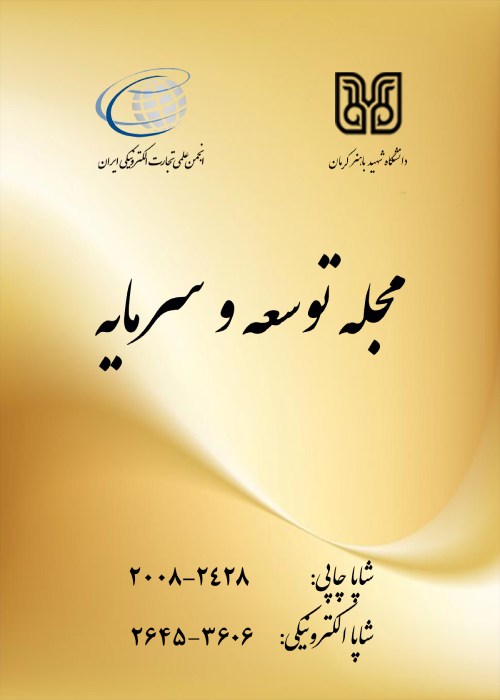The Impact of Monetary Policy on Inflation in Oil Developing Countries and Developed Countries
This study aims to investigate the behavior of inflation in relation to money in developed and developing countries, and then by comparing the differences between these two categories, the reasons and documentation necessary for the effect of money on inflation in two groups of developed countries and provide non-developed.
Based on the model presented in this research, the dependent variable interval is present as an explanatory variable in the model, which causes endogeneity in the model. In order to solve the endogeneity problem, the method of estimating generalized moments is used to estimate model parameters. The econometric estimation method that is used in most economic studies to solve the endogeneity problem is to use the two-stage least squares method 2SLS. The necessary condition for using this method is to find a suitable instrumental variable to solve the endogeneity problem; But using this method faces difficulties. The first problem in using this method is the difficulty of finding a suitable instrumental variable and even the limited nature of this type of variable. Also, using this method cannot solve the problem of correlation between explanatory variables and reduce or completely eliminate co-linearity in the model. To solve the problems mentioned in the economic literature, the method of generalized moments of GMM is used. The necessary condition for using the dynamic panel data approach should be the number of sections or cross-sectional units of the research period or time (N>T). Considering the point that in the current research, the time period studied is small compared to the number of countries, so it is appropriate to use the dynamic panel data approach.In the estimation process with the method of generalized moments, after the estimation stage, the validity of the instrumental variables and the over-specificity of the equation should be checked. In this regard, the Sargan test is used. In addition, the self-regression order of the disturbance sentences should be tested. In this regard, first-order differentiation to eliminate fixed effects will be a suitable method if the order of autocorrelation of disturbance sentences is not of the second order. In order to check the order of autocorrelation of disturbance sentences, Arland and Band have proposed the following statistic which has a normal distribution for free. In order to avoid false regression, first the unit root test of function variables is calculated. Before estimating the model, it is necessary to determine the type of data (composite or cross-sectional). In this regard, Limer's F test has been used in economic literature.
The estimation results for the two groups of countries under investigation show that the type of inflation in the two groups is different from the others, so that in oil-developing countries, the most important variable affecting inflation is inflation expectations, so that for each unit of increase in Inflation expectations in oil developing countries, the rate of inflation increases by 0.55 units, while in developed countries, this rate is 0.13 and does not have a statistically significant effect on the rate of inflation. The analysis of inflation in developed countries indicates that the most important variable affecting it is the interest rate, so that for each unit increase in the interest rate, the inflation rate increases by 1.22 units, while the effect of this variable on the inflation of oil developing countries It is equal to 0.31 units. Investigating the behavior of liquidity in relation to inflation of both investigated groups indicates a significant positive effect on inflation, and the only thing worth mentioning about the effects of liquidity is that the amount of this variable on inflation is greater in oil developing countries than in developed countries, so that For each unit of liquidity growth in oil countries, the rate of inflation increases by 0.10, while for developed countries this rate is 0.04.
Economic growth is a very important factor in reducing inflation in oil-developing countries and developed countries, and since developed countries pay a lot of attention to economic growth, it is necessary for oil-developing countries to also pay attention to this issue and factors such as the use of effective workforce that will increase economic growth, and also avoid over-reliance on oil income and by increasing the export of other domestic products, have a diverse export portfolio in case of a decrease in income Nafti prevented the expectations of inflation and budget deficit and brought price stability to the economy.The growth of liquidity in both groups of countries causes an increase in inflation, and since in developed countries liquidity is accompanied by high production; It does not lead to an increase in inflation, but in oil developing economies, the growth of oil income causes the economic growth of oil. increase If the government reacts to the increase in inflation by using imports, in the long term it can cause a decrease in economic growth, and if the oil income decreases, it will intensify inflation through liquidity and low economic growth. This study recommends that oil developing countries strictly prevent the application of fixed currency regimes so that oil income does not lead to liquidity changes in the country.The most effective factor on inflation in oil developing countries is inflationary expectations, which should be prevented from applying policies that cause inflationary expectations to increase. In this regard, it is recommended that the government and the central bank identify the factors affecting inflation expectations, such as increasing liquidity, increasing the exchange rate, and make other economic adjustments at appropriate times.: The main purpose of this study is to compare the effects of money supply growth on inflation in oil developing countries and developed countries.
- حق عضویت دریافتی صرف حمایت از نشریات عضو و نگهداری، تکمیل و توسعه مگیران میشود.
- پرداخت حق اشتراک و دانلود مقالات اجازه بازنشر آن در سایر رسانههای چاپی و دیجیتال را به کاربر نمیدهد.


